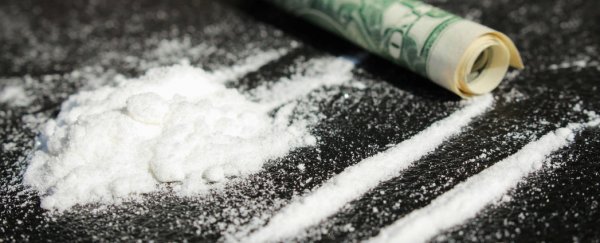We've come a long way from when we thought addiction was just a simple chemical reaction between the brain and a substance designed to kick our dopamine levels into hyperdrive. Now we know that there are certain genetic factors involved, making some people more genetically predisposed to addiction, and what makes it even harder to stay clean is there are many deep-seated social and environmental influences involved in how strong a feeling of addiction can become, and how likely a relapse will be.
With that in mind, researchers from the University of Texas at Austin in the US have investigated the possibility of using prescription drugs that promote brain plasticity as a treatment for addiction, because it could 'rewire' a person's brain to forget about these influences. The drug isradipine, which is currently on the market for the treatment of high blood pressure, has so far only been tested on rats addicted to cocaine and alcohol, but within days, erased all memory of addiction-triggering cues.
The team tested the drug out on rats that had become addicted to either alcohol or cocaine, and were trained to associate either a white or black room with consumption of the drug. Just like the bell was an environmental cue that kicked Pavlov's dogs' saliva glands into gear, when given a choice, the addicted rats would always move to the room associated with their drug of choice.
But this all changed when the rats were given a dose of isradipine. On the day of the treatment, the rats still preferred their drug room of choice, but in the days that followed, they showed no preference of room colour whatsoever. This lack of preference persisted, and was even greater than the lack of preference seen in the control rats, and the team says this shows that the memory that linked a coloured room with the experience of getting a hit was erased in a day by the isradipine.
"The isradipine erased memories that led them to associate a certain room with cocaine or alcohol," one of the team, neuroscientist Hitoshi Morikawa, said in a press release.
So why a blood pressure drug? Addiction to a drug forms when brain circuits involved in reward learning are rewired to make powerful connections between the wonderful feelings they impart and the places and people a user is with at the time.
What blood pressure drugs do is block a type of ion channel that's present not only in the heart and the blood vessels - which actively lowers blood pressure - but also in certain brain cells. And by blocking the ion channels in these brain cells, the researchers can undo this addiction-based rewiring that underlies memories of associated places.
The results have been published in Molecular Psychiatry.
Where to from here? The good news is isradipine is already on the market, so FDA approval won't be as arduous as if this was a new drug. The bad news is rats aren't humans, so we have no idea if the results will be similar in humans. Hopefully some researchers will take up the challenge.
